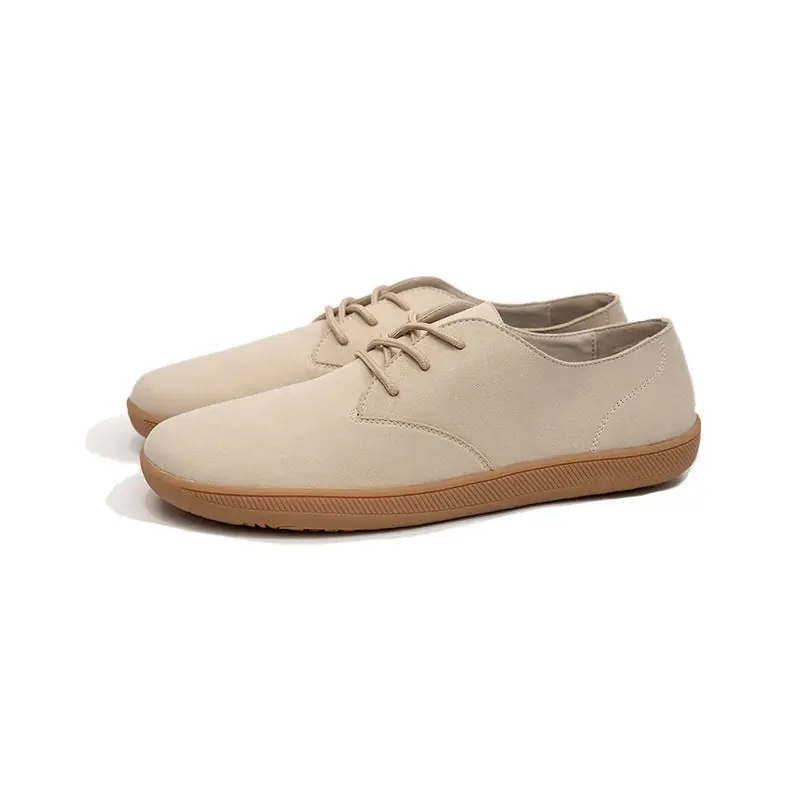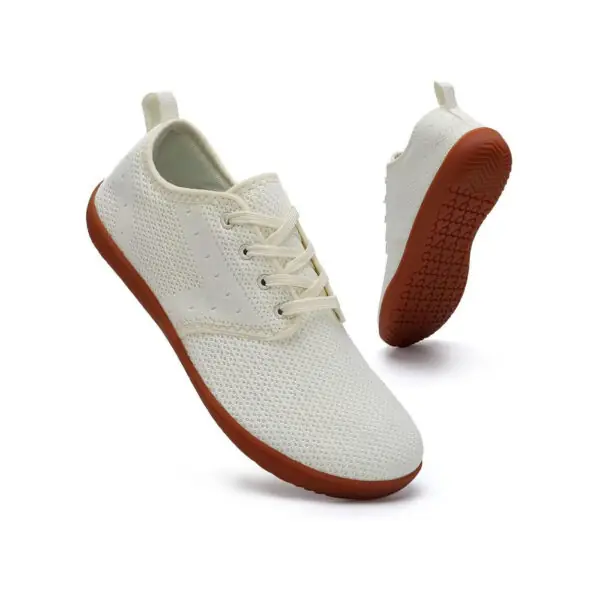Czy buty boso są szkodliwe dla szpitala?
For healthcare workers who spend long hours on their feet, the choice of proper footwear is crucial. The question of whether barefoot shoes are suitable for hospital settings deserves careful consideration. Let’s dive deep into this topic to understand the pros and cons of wearing buty na boso in healthcare environments.

Spis treści
Understanding Barefoot Shoes in Healthcare Settings
Barefoot shoes, also known as minimalist footwear, are designed to mimic natural foot movement while providing basic protection. In hospital settings, where healthcare workers can walk up to 12 miles during a typical shift, the impact of footwear choice becomes particularly significant. These shoes feature:
- Szeroki nosek dla naturalnego rozstawu palców
- Konstrukcja zero-drop (pięta i palce na tej samej wysokości)
- Minimalna amortyzacja
- Elastyczne podeszwy
- Non-slip properties
The Benefits of Barefoot Shoes for Healthcare Workers
Rozważając obuwie minimalistyczne for hospital use, several advantages emerge:
- Poprawiona propriocepcja
- Lepsze wyczucie podłoża
- Poprawiony balans
- Bardziej naturalny wzorzec chodu
- Zmniejszone zmęczenie stóp
- Mniejsza waga do przenoszenia
- Naturalne wzmocnienie stóp
- Lepsze krążenie krwi
- Poprawiona postawa
- Aligned spine position
- Zmniejszone obciążenie dolnej części pleców
- More natural standing position
Potential Challenges in Hospital Environments
While barefoot shoes offer numerous benefits, there are considerations specific to hospital settings:
- Protection from Spills: Healthcare environments often involve exposure to fluids
- Standing Duration: Long shifts require adequate support
- Infection Control: Shoe material must be easily cleanable
- Wymagania dotyczące bezpieczeństwa: Hospital policies regarding footwear
Choosing the Right Barefoot Shoes for Hospital Work

Podczas wybierania antypoślizgowe buty do chodzenia boso for hospital use, consider:
| Funkcja | Znaczenie | Reason |
|---|---|---|
| Non-slip sole | Niezbędny | Prevent accidents on wet floors |
| Waterproof material | Wysoki | Protection from spills |
| Easy to clean | Wysoki | Maintain hygiene standards |
| Comfortable fit | Krytyczny | Support during long shifts |
| Oddychalność | Ważne | Prevent foot sweating |
Adapting to Barefoot Shoes in Healthcare
The transition to barefoot shoes requires a gradual approach:
- Start with shorter wearing periods
- Stopniowe wydłużanie czasu trwania
- Słuchaj opinii swojego ciała
- Maintain proper foot exercises
Impact on Long-term Foot Health
Research suggests that traditional shoes with excessive cushioning may:
- Osłabione mięśnie stóp
- Reduce natural movement
- Contribute to foot problems
In contrast, barefoot shoes can help:
- Wzmocnienie mięśni stóp
- Improve balance
- Enhance natural movement patterns
Professional Perspectives on Barefoot Shoes
Many healthcare professionals report positive experiences with barefoot shoes:
“After switching to barefoot shoes, my end-of-shift foot pain significantly decreased” – Sarah, RN
Maintaining Comfort During Long Shifts
Tips for maximizing comfort with barefoot shoes:
- Obrót między wieloma parami
- Use appropriate socks
- Take regular breaks when possible
- Perform foot exercises
- Keep a backup pair handy
Często zadawane pytania
Are barefoot shoes appropriate for 12-hour hospital shifts?
Yes, but proper transition and selection of appropriate models is crucial.
How do I clean barefoot shoes used in hospital settings?
Use hospital-approved disinfectants and follow manufacturer guidelines for cleaning.
Will barefoot shoes provide enough protection in hospital environments?
Quality barefoot shoes offer adequate protection while maintaining natural movement benefits.
Czy buty na boso mogą pomóc w przypadku istniejących problemów ze stopami?
Many users report improvement in foot conditions, but consult a healthcare provider for specific concerns.
Dokonywanie przejścia
For healthcare workers considering barefoot shoes:
- Dokładne badania
- Zacznij stopniowo
- Wybór odpowiednich modeli
- Monitor comfort levels
- Właściwa pielęgnacja
Wniosek
Barefoot shoes can be excellent options for hospital work when chosen and used appropriately. The key lies in selecting models that balance natural movement with necessary protection and following proper transition protocols. While individual experiences may vary, many healthcare workers find that quality barefoot shoes enhance their comfort and foot health during long shifts.The decision to wear barefoot shoes in hospital settings should be based on personal comfort, hospital policies, and specific job requirements. With proper selection and adaptation, these shoes can provide a comfortable, natural, and beneficial footwear solution for healthcare professionals.
